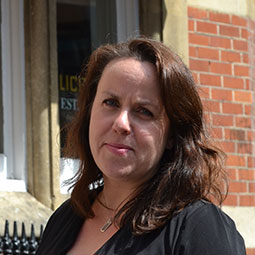
It is widely known that most people become engaged in Winter. You may now be planning your celebration, but there are some areas which are often not considered. Here are our tips to help you towards the big day.
1. Pre-nuptual Agreements
At the start of a marriage or civil partnership, most couples overlook protecting the assets which they bring to the relationship. Often, couples who are in love do not see the need to take any steps to safeguard their financial situation. They trust their partner ‘to do the right thing’ should the relationship breakdown. However, pre-nuptual agreements are a practical solution when there is a significant gap between the wealth of the bride and groom. Although they are not legally binding, a well written one will usually to taken into account by a Judge, in the unlikely event of a separation.
2. Not having a prenup, but …
If you decide not to go for a prenuptial agreement but have significantly more money than your spouse, it makes sense to keep the money as separate as possible, rather than mixing it all together. That way, in the unlikely event of the marriage ending, the money you kept separate at the time of marriage has a better chance of being protected, than money that has been put into joint funds.
3. Make a Will
Although it is be a morbid thought for any newly weds, you will need to make a new Will. Any Wills made beforehand become invalid on Marriage or entering into a Civil Partnership. You should consider how your new status affects you both. Sometimes you will need to change how your estate is distributed and how this may affect any children. Having a Will correctly prepared can be inexpensive and will save a great deal of heartache and confusion further down the line
4. Ownership of Property
Buying a property or moving in together is one of the most exciting things to do in a relationship. However, you should consider how to set up the ownership. You can own the property as “joint tenants” or as “tenants-in-common”.
Joint tenants: each person has equal ownership and has an equal right to keep or sell the property. In this case if one of the owners died, the share automatically passes to the surviving partner. This is regardless of whether a will has been made leaving the deceased owner’s share to someone else.
Tenants in Common: each individual has a definite share of the property. The difference is that if one partner dies, their share of the property passes to whoever they specified in the Will. This may not necessarily the surviving partner.
In practice what does this mean for a married couple both with grown up children from previous relationships? If they hold the property as “joint tenants” then on the first death the survivor would receive the whole property, potentially leaving the deceased children with nothing to inherit. This is avoided if the property is held as “tenants in common” and each person made Wills leaving a life interest to each other; upon both deaths the property would then pass in accordance of the original Wills.
For further advice
Druitts can help you with most marriage related issues. This includes Wills, Pre and Post Nuptual Agreements and Co-habitation Agreements. For more information please contact us on 01202 551863 or by using the website contact form to receive advice from one of our Specialist Solicitors.
Most importantly have a wonderful “big day” and relax in the knowledge that all the paperwork is organised.

